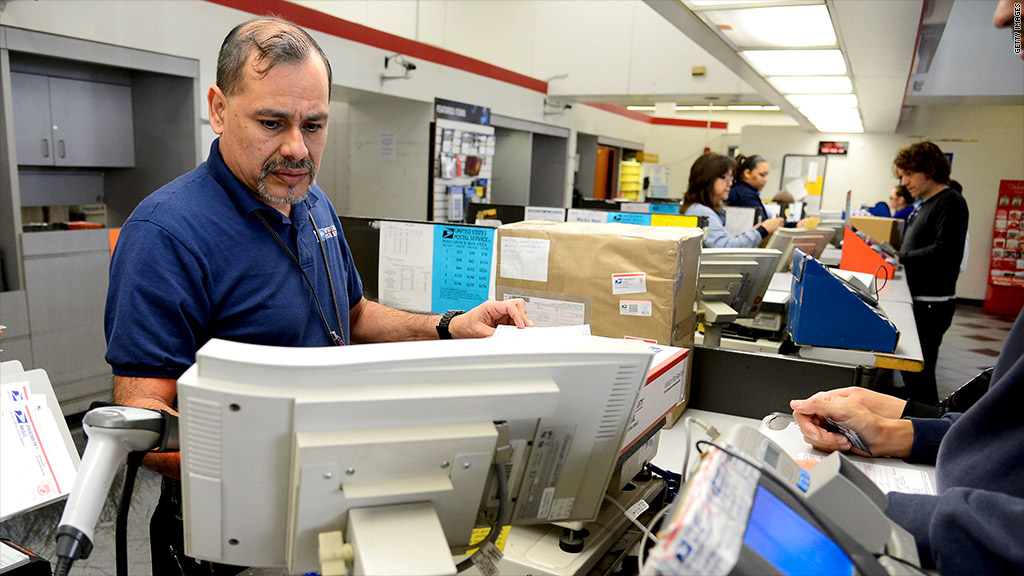
The U.S. Postal Service has defaulted on a $5.6 billion payment for retiree health benefits that was due on Monday, just as the Postmaster General had warned it would.
"We have not made the required $5.6 billion Retiree Health Benefits prefunding payment due Sept. 30, 2013," wrote USPS spokeswomen Patricia Licata in an email to CNNMoney. She added that the default has absolutely nothing to do with the federal government shutdown. "We have been saying for several months that we will be defaulting on this payment. This is the third time we have [done so]," Licata wrote.
Postmaster General Patrick Donahoe told the Senate Committee on Homeland Security and Government Affairs that the default was going to happen on Sept. 19.
At the time, he said the Postal Service was "in the midst of a financial disaster" and that it is "burdened by an outdated and inflexible business model" that prevents it from making payments.
Related: Postal Service seeks to hike stamp prices by 3 cents
Postal officials have long complained about a Congressional mandate that requires them to set aside billions of dollars for a retiree health care fund each year. The Postal Service also defaulted on these prefund payments last year. In fiscal year 2012, the Postal Service lost a total of $15.9 billion, including $11.1 billion in defaulted payments that it owes to prefund health benefits for retirees.
But Postal officials point out that other federal agencies aren't required to prefund for retirees this way.
In addtion, the Postal Service hit its debt limit last year, which means that it cannot borrow any more money from the U.S. Treasury.
The Postal Service plans to cut 150,000 workers through 2015, and recently proposed a price hike for stamps. But officials have said that the crisis won't go away until Congress makes the prefund requirement disappear.
Related: Cash-strapped USPS to rent mail vans
"The Postal Service continues to be in a financial crisis," said Licata. "Without passage of comprehensive legislation as outlined in our Five-Year Business Plan, current projections indicate that we will have a dangerously low level of liquidity in the foreseeable future."
Unlike other federal agencies, the Postal Service isn't funded by taxpayers, and is intended to function like a private business.
-- CNNMoney's Jennifer Liberto contributed to this story.


